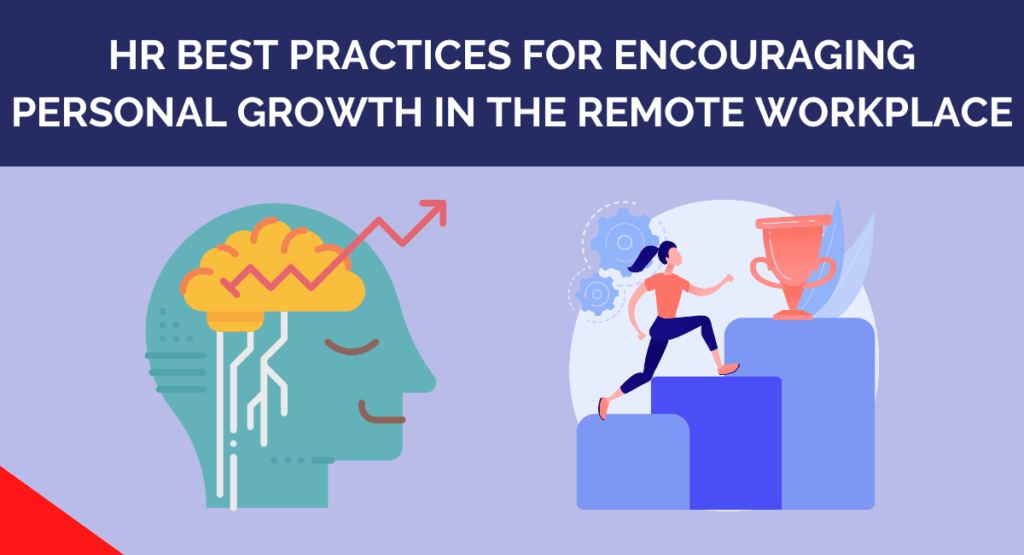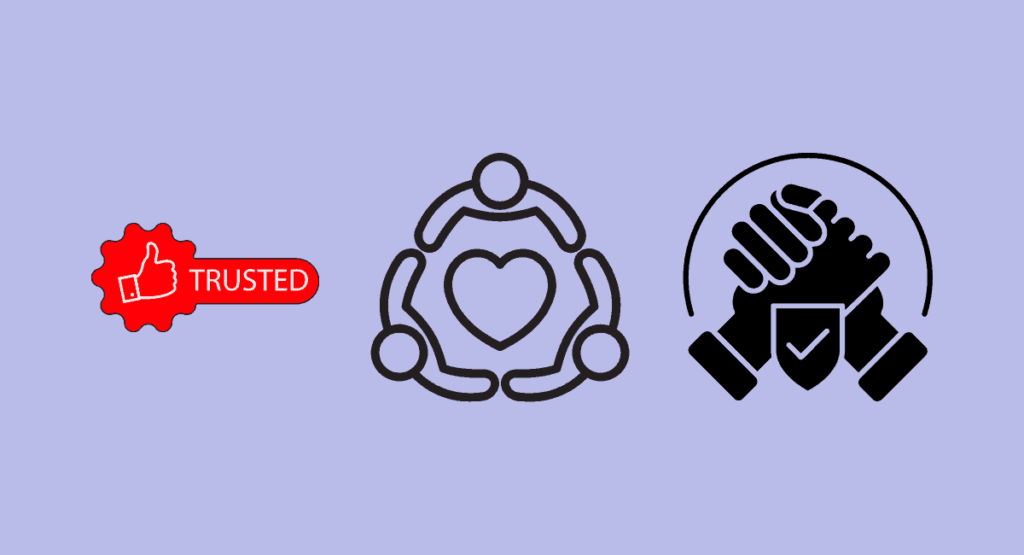HR Best Practices for Encouraging Personal Growth in the Remote Workplace


Employees who feel supported, challenged, and empowered to grow in their personal and professional lives have a greater sense of engagement with their work.
But how can employers ensure personal growth for their remote workforce?
HR best practices such as providing feedback, offering development opportunities, and encouraging collaboration can help cultivate a culture of personal growth in the remote workplace.
In this article, we’ll explore some of these HR best practices to help you create an environment where employees are encouraged to reach their full potential.
So if you’re looking for ways to support your team’s self-growth while working remotely, read on!
Introduce personal growth and why it is crucial in the remote workplace
“Personal growth takes time, but all great things do, so I’ve learned to stay patient.” Seff Said.
Personal growth is essential in the remote workplace. It means getting better and learning new things, like a new skill or way of working. It helps people to do their job better and stay motivated even when they work from home.
Personal growth is essential in the remote workplace because it helps people improve and stay motivated. It means learning new skills or ways of working to help you do your job better.
Working from home can be challenging, but personal growth makes it easier to keep going.
By providing personal growth opportunities to your employees, you can help them stay engaged and productive even in a remote work setting.
How to create an environment that encourages personal growth for remote workers?

Are you looking for ways to help your remote workers grow and develop in their personal lives? The HR best practices to create an environment that encourages personal growth for your remote team is:
1. Provide feedback
Feedback is essential for personal self-growth in the remote workplace. It lets employees get an outside perspective on their performance, learn from mistakes, and develop their skills.
Provide regular feedback to your remote employees to let them know how they’re doing. It would be best if you also gave them time to reflect on the feedback they get and make changes accordingly.
2. Encourage collaboration
Collaboration is key for personal self-growth in a remote workplace. Working with others helps employees learn new skills and develop their existing ones.
Encourage collaboration by creating channels for employees to share ideas and work on projects. You can also set up virtual meetings or group activities to help keep the team connected and engaged.
3. Offer development opportunities
Development opportunities are important for personal self-growth in the remote workplace. You can help employees become more efficient, productive, and successful by allowing them to learn new skills.
You can offer development opportunities by providing online courses or workshops, encouraging employees to attend conferences, or offering mentoring programs.
4. Reward achievements
Rewarding personal achievements is an effective way to show your remote employees that you value their self-growth. You could provide bonuses for achieving personal goals or recognize their efforts in online forums.
By creating an environment that encourages self-growth for your remote team, you can ensure that your employees are motivated.
You can help them reach their personal and professional goals with the right HR best practices.
How can HR help facilitate personal growth in the remote workplace?

HR can help people grow in their remote workplace. They can do this by giving employees tasks and goals to reach, allowing them to take on more responsibility, and providing personal learning resources like books or courses.
HR can also give feedback on how employees are doing and suggest ways to improve. This will help employees understand what skills they should work on and how to develop them.
Additionally, offering personal development workshops or seminars can help individuals gain greater knowledge and insight into their personal self-growth goals.
Finally, HR can create a team environment within the remote workplace by encouraging collaboration, respect, and communication among colleagues.
The collaboration environment allows employees to share ideas, learn from each other, and build relationships. Allowing time for personal self-growth activities can also boost morale and help employees grow as individuals in the workplace.
By taking advantage of these best practices, HR can help foster personal self-growth among its remote workforce and create a more productive and successful team.
Highlight best practices for managing performance remotely.

Remote work can be a great way to encourage personal self-growth. However, managing performance remotely comes with its unique challenges.
Remote work settings need to provide employees with opportunities for personal growth.
Utilize technology tools such as video conferencing to stay connected
Using tools like video conferencing can help you stay in touch with people who work from home. It is a good way to track personal self-growth and ensure everyone is doing their best work.
Use online surveys or polls to get feedback from employees about their work experience.
Online surveys or polls are an effective way to gain feedback from remote employees about their work experience.
By having a pulse on how employees feel about the environment, culture, and workload, employers can make adjustments to foster personal self-growth and better engage with the team.
With online surveys or polls, employers can ask about employee satisfaction, job performance, and personal development opportunities.
The internal polls will help employers identify areas where employees need more development. Employers can also track results over time to see if any changes have positively or negatively affected employee morale and productivity.
Additionally, online surveys or polls allow employers to stay connected with remote employees by providing a forum for discussion and feedback.
To ensure trust between employer and employee, these discussions must remain confidential so that all parties feel comfortable expressing their opinions.
To ensure personal growth in the remote workplace, employers must establish a feedback loop with their workforce. Hence, they understand the development resources available and how they can help them reach their goals.
Online surveys or polls provide an easy way for employers to obtain this information quickly and accurately.
Create a culture of trust

One of the most important things managers can do to promote personal growth among their employees is to create a culture of trust.
The culture of trust means that managers must be open and honest with their employees, give them regular feedback, and be available for support when needed.
Additionally, ensuring employees know the company’s expectations and goals is essential to success.
Regular check-ins
Regularly scheduled check-ins are also essential for personal growth in a remote workplace setting.
These should occur every other week and involve two-way conversations during which managers can discuss the employee’s progress, offer constructive feedback, and discuss any issues or concerns related to personal growth.
Offer professional development
Offering professional development opportunities is an excellent way to encourage personal growth in a remote working environment.
Managers should strive to create learning and development opportunities tailored to their employees’ personal needs. Examples include virtual workshops, webinars, and mentorship programs.
By following these best practices, managers can create a supportive environment for personal growth in the remote workplace and ensure that their team works at its full potential.
What challenges do HR teams face when implementing personal growth initiatives in the remote workplace?

HR teams face key challenges when implementing life personal growth initiatives in the remote workplace.
First, HR professionals need to be able to interact with employees in person regularly to monitor and evaluate personal growth initiatives effectively.
Second, it can be harder for them to develop personal relationships and team dynamics that can help foster personal growth when everyone is separated by distance.
Third, communication and technical difficulties may arise, making it more challenging for HR teams to keep track of progress and provide the necessary support for employees.
Finally, there could be a lack of consistency or regularity in implementing personal growth initiatives if managers are not on board or willing to participate.
How can employers leverage technology to support continuous learning and development for their remote workers?
Employers can use technology to provide remote workers access to online training resources, such as webinars and educational videos.
They can also create personal development plans for their employees, which will help them set learning objectives and track progress toward achieving those goals.
Technology can also facilitate virtual meetings between remote workers, enabling employers to encourage collaboration and brainstorming amongst staff.
Finally, employers may leverage video conferencing software to give one-on-one feedback to ensure personal growth among remote workers.
What tools are available to help measure the progress of a remote employee’s professional growth?

Performance evaluation tools are essential for measuring personal growth in a remote workplace.
Companies can use these tools to assess competencies, identify weaknesses and strengths, provide feedback, and determine areas of improvement needed to help employees grow professionally.
Additionally, they should be tailored specifically to the individual employee’s goals and needs.
Management could also consider using virtual training platforms or e-learning modules that teach specific skills relevant to the role to give them more structure regarding personal growth.
Businesses need to offer recognition whenever possible – especially when working remotely, as it can be difficult for managers and peers alike to notice personal growth in an online environment.
Awarding bonuses or recognizing milestones employees achieve through virtual awards ceremonies are a great way to create motivation and personal growth in the remote workplace.
By following these best practices, employers can encourage and support personal growth in the remote working environment.
Are there any creative approaches for encouraging self-improvement among virtual workforces?
Absolutely! Here are some ways to optimize personal growth in a remote work environment:
• Create learning opportunities.
Offer employees access to online courses, webinars, or other resources designed to help them build their skillset.
Make sure that personal development is part of the organizational culture and take advantage of available tools to provide employees with creative ways to learn and grow.
• Encourage collaboration between team members.
Remote teams should be given equal opportunities to traditional teams when building collaborative relationships.
Whether through virtual meetings or collaboration tools like Slack, ensure there are plenty of options for workers to interact with each other and share ideas on how they can improve their growth journey together.
HR professionals use strategies to ensure remote employees have access to professional development opportunities.

HR professionals can focus on creating personal growth plans tailored to each remote employee’s individual needs and goals.
These personal growth plans should incorporate short-term and long-term objectives and provide clear steps for achieving them.
Additionally, HR professionals can ensure that personal growth plans are integrated into the company’s remote work policy so employees can access resources when needed.
HR teams can also leverage technology to build an effective professional development program for remote employees.
For example, they might consider implementing a web-based learning management system (LMS) to deliver training materials and track progress over time.
Additionally, virtual training sessions or seminars may bring all remote employees together for skill-building opportunities.
Finally, HR teams should build personal relationships with remote employees. Regular check-ins, feedback sessions, and other forms of communication will help foster personal growth and allow employees to feel connected to the organization while working remotely.
Additionally, providing remote workers access to mentors or career coaches can be a great way to encourage personal growth.
By taking these steps, HR professionals can ensure that remote employees have the same development opportunities as those in an office setting.
Encouraging personal growth helps create a culture of continuous improvement and keeps employees engaged even when they’re not physically present in the workplace.
With the right strategies and tools, HR professionals can build a successful professional development program for their remote workforce.
Conclusion
In conclusion, personal growth is essential to any remote working environment.
HR professionals can support personal growth in the online workplace by creating tailored personal development plans and leveraging technology to deliver training materials and track progress over time.
They should also focus on building personal relationships with their remote employees through regular check-ins, feedback sessions, and other forms of communication.
Additionally, providing access to mentors or career coaches can be a great way to encourage personal growth among virtual workforces.
By following these best practices for optimizing personal growth in the remote work environment, employers can ensure that every employee has equal opportunities as traditional teams regarding professional development and self-improvement.


